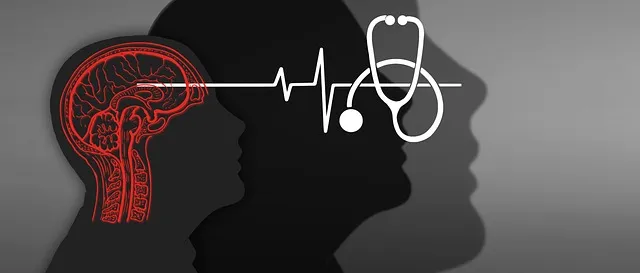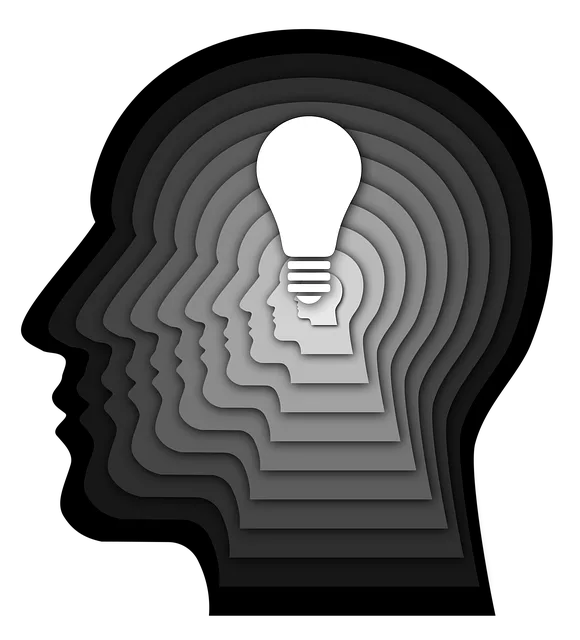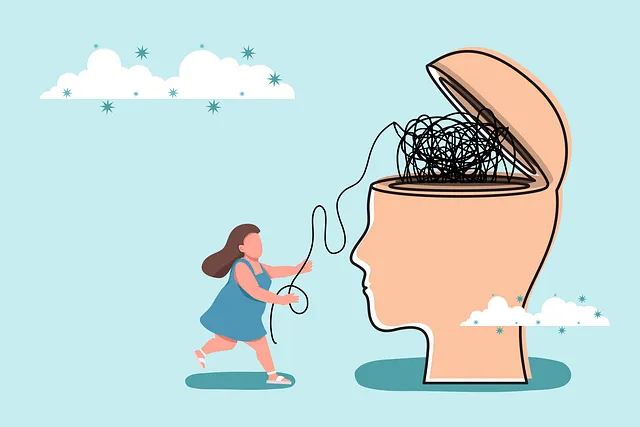Mental wellness self-assessment tools, accessible through services like Kaiser Longmont, empower individuals to understand their emotional states and address potential mental health issues. These assessments provide structured self-reflection frameworks for stress management and emotional intelligence development. By offering convenient mental wellness evaluations, especially for those hesitant about professional help, these tools enable informed decisions, promoting resilience and improved quality of life. Kaiser Longmont, a leading mental health service provider, offers integrated psychological and psychiatric care with a holistic approach, addressing emotional well-being through education, coping strategy development, conflict resolution techniques, and culturally sensitive practices. Effective self-assessment tools for mental wellness are created through meticulous processes, integrating Crisis Intervention Guidance for immediate support recognition and stigma reduction. User-friendly digital platforms with personalized feedback, tailored recommendations, interactive questionnaires, visual aids, and audio guidance enhance engagement and accessibility. Regular updates with latest research and evidence-based practices ensure their effectiveness. Distribution strategies leverage online platforms, social media, community partnerships, collaboration with healthcare professionals, schools, and local organizations to reach a broad audience, including those seeking mental health services through Kaiser Longmont.
Mental wellness self-assessment tools play a pivotal role in empowering individuals to take charge of their mental health. This article explores the development and importance of these tools, focusing on Kaiser Longmont’s efforts in enhancing access to mental health services. We’ll delve into strategies for creating effective assessments and distributing them widely, offering practical insights for both professionals and those seeking support. Learn how to leverage self-assessment as a gateway to essential mental health resources through Kaiser Longmont.
- Understanding Mental Wellness Self-Assessment Tools
- Kaiser Longmont's Role in Accessing Mental Health Services
- Developing Effective Self-Assessment Tools
- Strategies to Enhance and Distribute Self-Assessment Resources
Understanding Mental Wellness Self-Assessment Tools

Mental wellness self-assessment tools play a pivotal role in helping individuals gain valuable insights into their mental health and well-being. These tools act as a bridge, enabling people to understand their emotional states, identify potential issues, and take proactive measures towards fostering inner strength development. By providing a structured framework, they guide users through the process of self-reflection, promoting better stress management and overall emotional intelligence.
For those seeking mental health services, such as those available through Kaiser Longmont, these assessments are an excellent starting point. They offer a convenient and accessible way to assess one’s mental wellness, especially for those who might be hesitant or unsure about reaching out for professional help. With the ability to gauge personal well-being, individuals can make informed decisions and take control of their mental health journey, ultimately fostering resilience and enhancing overall quality of life.
Kaiser Longmont's Role in Accessing Mental Health Services

Kaiser Longmont plays a pivotal role in expanding access to mental health services within its community. As an integrated healthcare provider, they offer comprehensive psychological and psychiatric care through a dedicated team of professionals. Individuals seeking support for their emotional well-being can benefit from various services tailored to address specific needs.
The organization’s approach emphasizes not only treating symptoms but also promoting emotional well-being through preventive measures and education. They facilitate the development of effective coping strategies, provide conflict resolution techniques, and foster cultural sensitivity in mental healthcare practice. This holistic perspective ensures that patients receive personalized care that respects their unique backgrounds and experiences.
Developing Effective Self-Assessment Tools

Developing effective self-assessment tools for mental wellness is a multifaceted process that requires careful consideration and expertise. These tools play a pivotal role in guiding individuals toward appropriate mental health services, much like navigating through Kaiser Longmont to find specialized care. One of the primary steps involves identifying key indicators of mental well-being and distress, which can be achieved by reviewing existing literature and consulting with healthcare professionals. This foundational knowledge ensures that the self-assessments accurately capture a wide range of emotional and psychological states.
Additionally, designing user-friendly interfaces is crucial to encourage honest and detailed responses from users. Incorporating elements of Crisis Intervention Guidance within these tools can help users recognize signs of distress and guide them towards immediate support or professional help, similar to how public awareness campaigns development can promote understanding and reduce the stigma surrounding mental health issues. By seamlessly integrating such features, self-assessment tools can become powerful allies in fostering emotional healing processes.
Strategies to Enhance and Distribute Self-Assessment Resources

To enhance self-assessment resources for mental wellness, consider incorporating user-friendly digital platforms that offer personalized feedback and tailored recommendations. These tools should be designed with accessibility in mind, ensuring they are inclusive and cater to diverse needs. Incorporating features like interactive questionnaires, visual aids, and audio guidance can improve engagement, especially for those who prefer alternative learning methods. Regular updates with the latest research and evidence-based practices will maintain the effectiveness of these resources.
Distribution strategies should aim to reach a broad audience, including individuals seeking mental health services through Kaiser Longmont and those beyond. Utilizing online platforms, social media, and community partnerships can effectively spread awareness about these tools. Collaborating with healthcare professionals, schools, and local organizations can further ensure that the resources are readily available to those who need them most, fostering a culture of proactive mental wellness management.
Mental wellness self-assessment tools play a pivotal role in empowering individuals to take charge of their mental health. By developing effective resources, such as those highlighted in this article, we can enhance accessibility to mental health services. Kaiser Longmont’s innovative approach demonstrates how organizations can bridge the gap between self-assessment and professional support, ultimately guiding folks towards the appropriate care. Through strategic distribution, these tools have the potential to reach a wide audience, fostering better mental wellness awareness and ensuring that those seeking assistance know how to access mental health services through Kaiser Longmont or similar resources.






